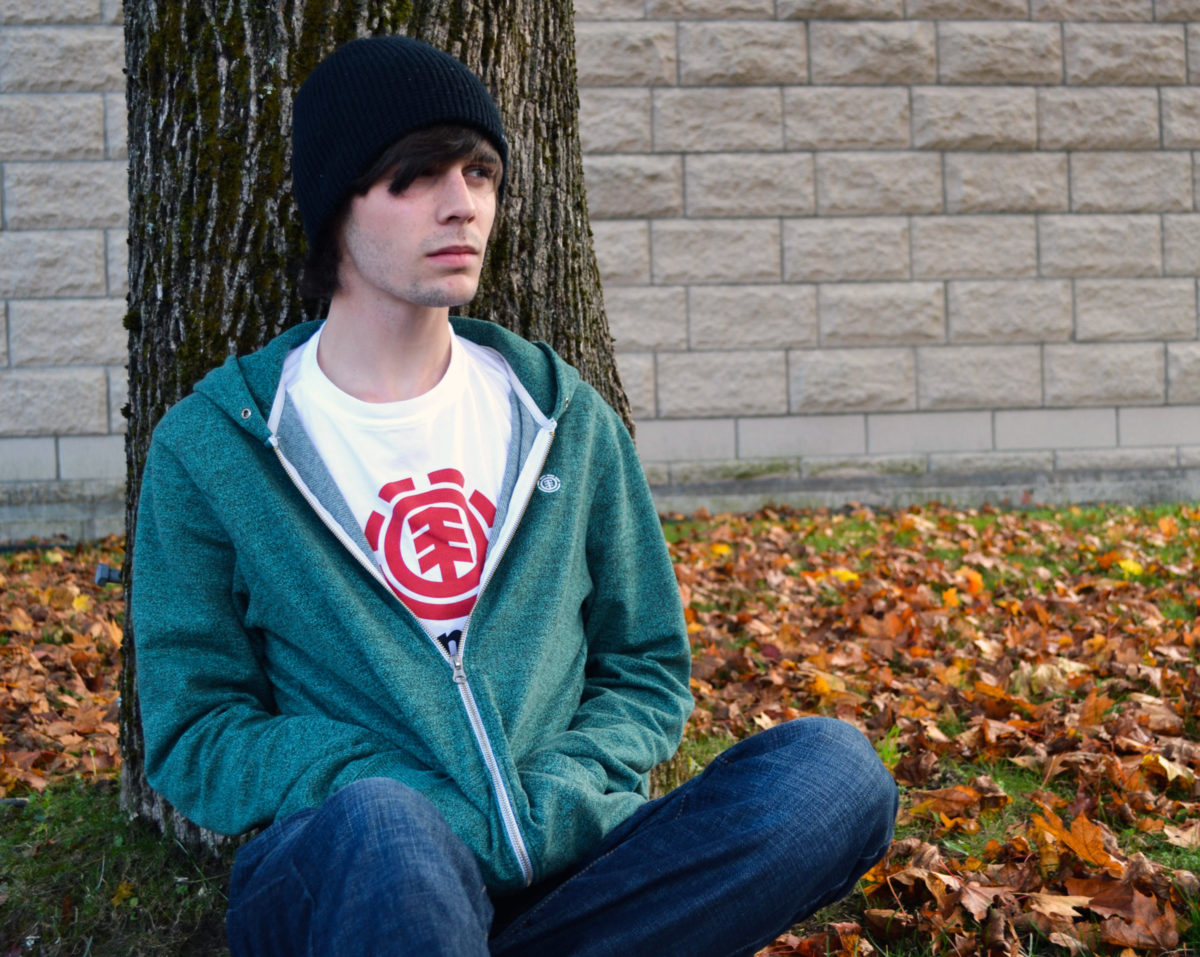
(Hadeel Ibrahim/AQ)
Justin Coburn studied all night for a history quiz. The 19-year-old St. Thomas student got to class and drew a blank. He stopped hearing his own thoughts and he could feel the weight of embarrassment. It was a panic attack brought on by his anxiety disorder.
“I used to get to a point where I’d think what’s the point of thinking because I’m just going to forget anyway,” said Coburn.
The Canadian Mental Health Association says anxiety affects more than 10 per cent of Canadians. For some, it could be as simple as butterflies in the stomach, but it’s diagnosed as an illness when stress levels begin to impair a person’s ability to complete everyday tasks. Anxiety and depression is more common in teenagers. And for students like Coburn, university, with both stress of social and academic pressure, can be especially trying.
- ••
Coburn was eight-years-old when he was first diagnosed with anxiety. He can remember being angry at himself for not making any friends.
“No one wants to be friends with someone who has problems,” said Coburn. “No one wants to hear about them.”
Coburn said he never had more than two friends at any given time in his entire life because no one was willing to stick around for more than a year. In most social settings, his mind would race and exaggerate the mistakes he made. It depressed him.
“Anxiety destroyed my social life.”
Coburn is from a small town. His brother was social and most people liked him. When Coburn was introduced to his brother’s friends, he could read the disappointment that he just wasn’t his brother.
“All of this only added to my introversion and sent me into what may be called isolation, where I had little to no contact with anyone for about a week and a half at my worst,” he said. “Nor did I want to. This in itself was a terrifying place for me to be in, simply due to the fact that my worst fear is being alone.”
Coburn’s social anxiety fed his isolation which in turn made him angry and depressed. He was angry because he wanted to make friends but his anxiety just couldn’t let it happen. He felt ignored and wanted to lash out.
His own family left him feeling isolated because they refused to believe him when he said he had a problem. Coburn doesn’t blame them. He just wishes things were different.
When his depression worsened, his family sought help from a therapist. That didn’t help. He was told he shouldn’t play so many video games so he took it upon himself to deal with his illness.
- ••
Things didn’t start to get better until he came to university. People were more understanding and accepting. He was told about academic accommodations by a counsellor on campus but wanted to handle it on his own. Anxiety tends to come in waves so many people tend to think they’re OK, but should still be receiving help.
Coburn has to make sure all of his professors know about his illness, which he admits is embarrassing at times. Still, his professors make him do group work although he’s not comfortable in that setting.
“There isn’t much you can do in my opinion to make professors more available to talk to, as they are already commonly open to discussion,” said Coburn.
The stress of school and pressures from social groups led to that day in history class, but it also finally led him to seek professional help. The doctor asked him how he got this far in school, considering the severity of his anxiety. He was also informed that he has Attention Deficit Disorder, which he now takes medication for.
“At this point, it more so falls on the person with anxiety to take it upon themselves to seek help,” said Coburn. “I must say the same thing about counsellors and professors, there are already pretty decent policies and systems put in place. I don’t see a way of improving availability. Perhaps teaching students that having a mental disorder doesn’t make you part of an out group. In fact, there’s a medical disorder for pretty much everything.”
He hopes more students will get help sooner, and hopes parents might learn to listen when their child tells them something is wrong.
Fortunately, Coburn’s grades are improving and he hopes in the future he might one day be better able to cope with social issues.
“My hope for myself is that at some point in my life, the thought of improving myself won’t seem as radical and impossible as it does now.”

